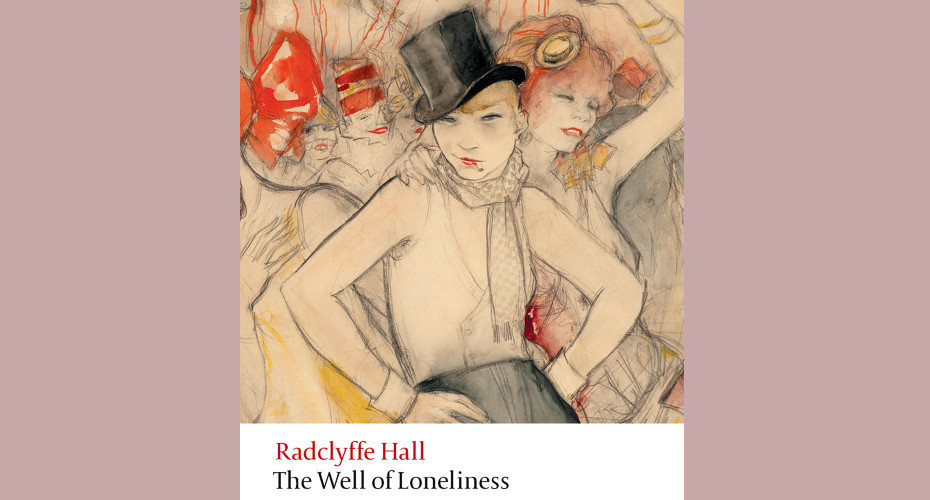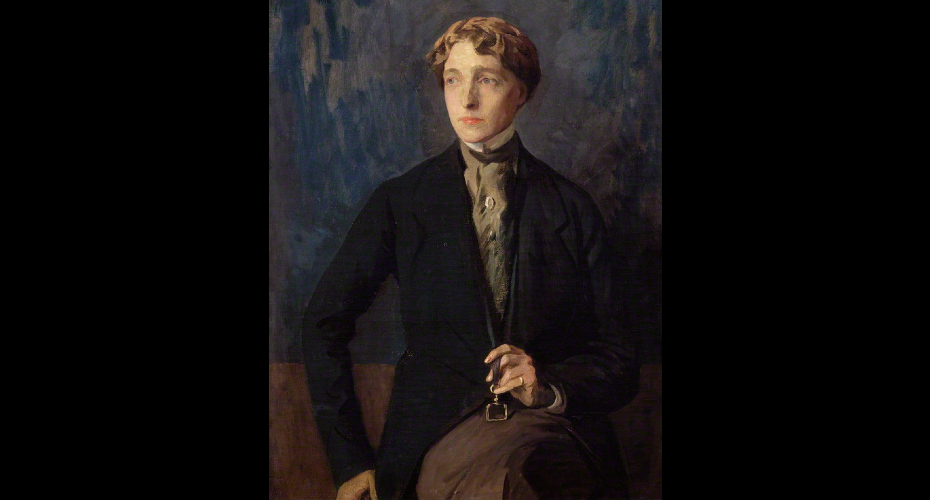International project launched to recover the hidden history of once-banned LGBTQ+ novel The Well of Loneliness

The Well of Loneliness was banned as obscene in the UK following its publication in 1928
The ‘most famous banned novel in LGBTQ+ history’ is the focus of a new international project that will bring together generations of readers to uncover how it reached and touched so many people around the world.
The Well of Loneliness, written by British author Radclyffe Hall and often referred to as “the Lesbian Bible”, was banned as obscene in the UK following its publication in 1928.
Now, in the build-up to the centenary of that ban, a team of world-leading experts in late 19th and early 20th-century culture will carry out new research and create the first oral history of the novel’s reception, interviewing 100 readers of the book from different communities and generations to record their interpretations of it.
They will also work with international archives and heritage specialists to understand how debates around The Well of Loneliness might help to create better engagement and more dialogue around other contentious and controversial histories.
Funded by a grant of more than £1,000,000 from the Arts and Humanities Research Council, 100 Years of The Well of Loneliness will run for the next five years. It will be led by the University of Exeter along with the Universities of York, Loughborough, and Cardiff Metropolitan, The National Archives, and the Harry Ransom Center in Austin, Texas.
“Radclyffe Hall’s The Well of Loneliness is one of the most contested books in LGBTQ+ history,” says project lead Jana Funke, Professor of Modern Literature and Sexuality Studies, in Exeter’s Department of English and Creative Writing. “It has served as a source of affirmation for generations, resonating with different LGBTQ+ readers, including trans and non-binary individuals.”
Dr Hannah Roche, Senior Lecturer in Twentieth-Century Literature and Culture at the University of York, adds: “For almost a century, the novel has fuelled debates about sex, gender, and sexuality; freedom of expression and censorship; and the identity-shaping potential of literary fiction.”
The Well of Loneliness, brought to print by British publisher Jonathan Cape, follows the life of Stephen Gordon, a ‘sexual invert’ who falls in love with another woman and eventually finds temporary happiness with another female partner while serving as an ambulance driver during the First World War.
A campaign against the book was launched soon after its release in 1928, and this culminated in a court ruling that it was obscene. The judgment removed it from print in the UK until 1949, but did little to stop it from being translated into multiple languages and read around the globe.

Over the span of the research project, the team will examine how the novel came to be published, translated and reinterpreted against this backdrop of legal censorship and social hostility. The project team will go on to look at the impact that the book has had upon different communities around the world; its representation of domesticity and national identity, including Welsh and Irish identities; and the expression of LGBTQ+ cultures through fashion and photography.
Through a public-facing website, a new short film by award-winning filmmaker Campbell X, and a series of public showcases, displays, workshops, and events, 100 Years of The Well of Loneliness will work to engage, educate, and connect with a wider public audience.
The project team also includes diverse heritage specialist Victoria Iglikowski-Broad from The National Archives. She said: “The policing of gender and sexuality through censorship, conversely leaves us vital archival traces to interrogate and explore our understanding of how this seminal text was received. The state response to The Well of Loneliness highlights the fears and opportunities the novel presented.”
The project’s insights into public engagement practice will be shared through a heritage toolkit, co-produced with The National Archives, and a knowledge exchange event aimed at heritage, archive, and museum specialists.
“A century after Hall’s narrative began to move, inform, inspire, disturb, and disgust readers, the project will, for the first time, trace the extent of its social and cultural impact over the last one hundred years,” says Dr Elizabeth English, Senior Lecturer in English at Cardiff Metropolitan University.
Dr Sarah Parker, Senior Lecturer in English at Loughborough University, adds: “For better or worse, The Well of Loneliness has served as a touchstone for generations of LGBTQ+ readers. Our project will tell the story of that history, as well as envisaging what this novel might mean to future readers.”



